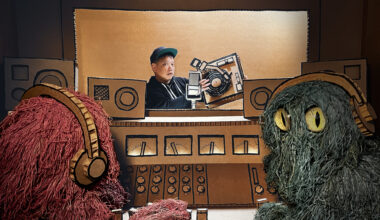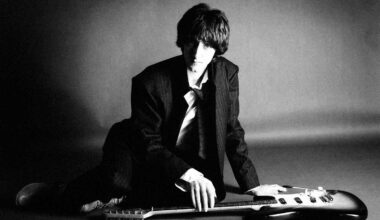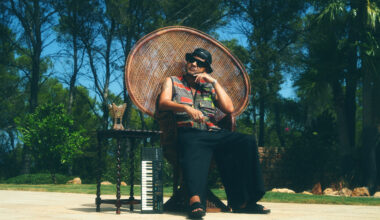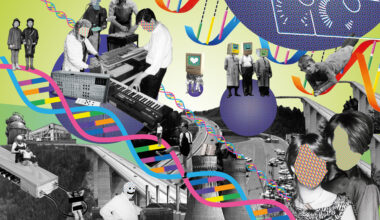It’s been a battle sometimes, but she’s picked her own path through a music life well lived. With the lush electronica of her new album, Alison Moyet clearly remains a force to be reckoned with
“I’m quite a difficult artist to follow,” says Alison Moyet thoughtfully, rubbing clay from her hands. “People have picked me up in different stages of their lives and at different stages of my career. I’ve come to realise that you just can’t make everyone happy.”
Moyet is reflecting on a career that has seen her firmly entrenched in the 1980s pop zeitgeist, before moving into the disparate areas of heartstring-tugging jazz torch songs, musicals, folk and rock, all supported by her instantly recognisable, blues-inflected voice. For now, however, Moyet’s musical interest lies in the clever electronic songs she has developed with producer Guy Sigsworth, first on 2013’s ‘The Minutes’ and now on ‘Other’, two albums which inevitably feel like a synth-driven loop back round to her early work with Erasure’s Vince Clarke in Yazoo.
Moyet’s other interest, hence the clay on her hands, lies in the world of figurative art. As well as balancing promotional duties for ‘Other’, she is spending her time commuting to London from her home in Brighton to study at college, where she occupies her days chiselling away at a sculpture. It has, she says with self-deprecating humour and a typical preciseness of language, left her looking “a bit like a docker”.
“‘Other’ is about two big things – age and geography,” reveals Moyet. “Before this, I lived in Hertfordshire, in a big house where I felt completely isolated. I spent a long time feeling very observed, just by the nature of the job that I do. But then you fall into this invisible place that is middle age for a woman. I know a lot of people rail against that, but I’ve found it a complete delight. People have always had something to say about me, good and bad. I felt I’d spent most of my growing up being observed and I’m now at this place where I have become the observer.”
Her decision to move into a terraced house in Brighton and start living as part of a community once again has given Moyet a wholly altered perspective and fed into the creative process of writing ‘Other’ with Guy Sigsworth, an accomplished producer who has worked with Björk and Madonna.
“Before this, I’d always been looking in,” Moyet continues. “My friends would say that I spent too much time in my own head. So ‘Other’ is about looking out and describing what I see, in a language that suits me. Guy’s been such a brilliant counterfoil. It really feels like a band.
When you work with creative men, there’s often an assumption that the creativity will always come from them, whereas with Guy we both have creative fields that we work in. I do the song structures and Guy illustrates everything. He’s the least patronising co-worker I’ve ever had. It’s exactly what I want from a collaborator. I also don’t hamper him – we’re writing the songs together, so he should be able to see himself within them.”
One signature aspect of working with Sigsworth on ‘The Minutes’ and again on ‘Other’ has been to encourage Moyet back towards electronica after a sometimes uncomfortable relationship with computer music.
“The problem I had, especially in the 1990s, was there was a lot of electronic skill around, but very little musicality,” she explains. “I’d hear these remixes of my songs, and I’d wish they’d just leave my fucking voice out of it, because changing my pitch and cramming me into the tempo made it ugly.”
Through working with Sigsworth, who seems to have a very specific approach to using synths and programming, Moyet has come to appreciate what she’d almost forgotten she liked about electronic music back in the early 1980s.
“It’s like dropping water onto Formica,” she muses, with typical erudition. “I’ve got so many fibres to my voice, if you put them together with guitars, sometimes all those fibres get lost in the gaps. Whereas with electronica, you can have this more controlled sound that allows for a shiny table top, so when my voice is cracking, or when there are undulations, you can actually hear that. Or you can make it not shiny and add dirty sounds or different textures.”
It’s been lazily suggested that ‘Other’, like ‘The Minutes’ before it, serves as a return to where Moyet’s career first began, namely with Vince Clarke in Yazoo. Given the similarity between some tracks on ‘Other’ and the slick sounds that Yazoo produced, that would seem to make sense. Except that Moyet, before becoming Clarke’s musical accomplice in one of the most complex pop propositions of the early 80s, was actually a fully-fledged punk. On the extremely limited recorded evidence available, her gutsy voice was just as well suited to its role in Southend-on-Sea groups like The Vicars as it would prove to be as a foil for Clarke’s synths.
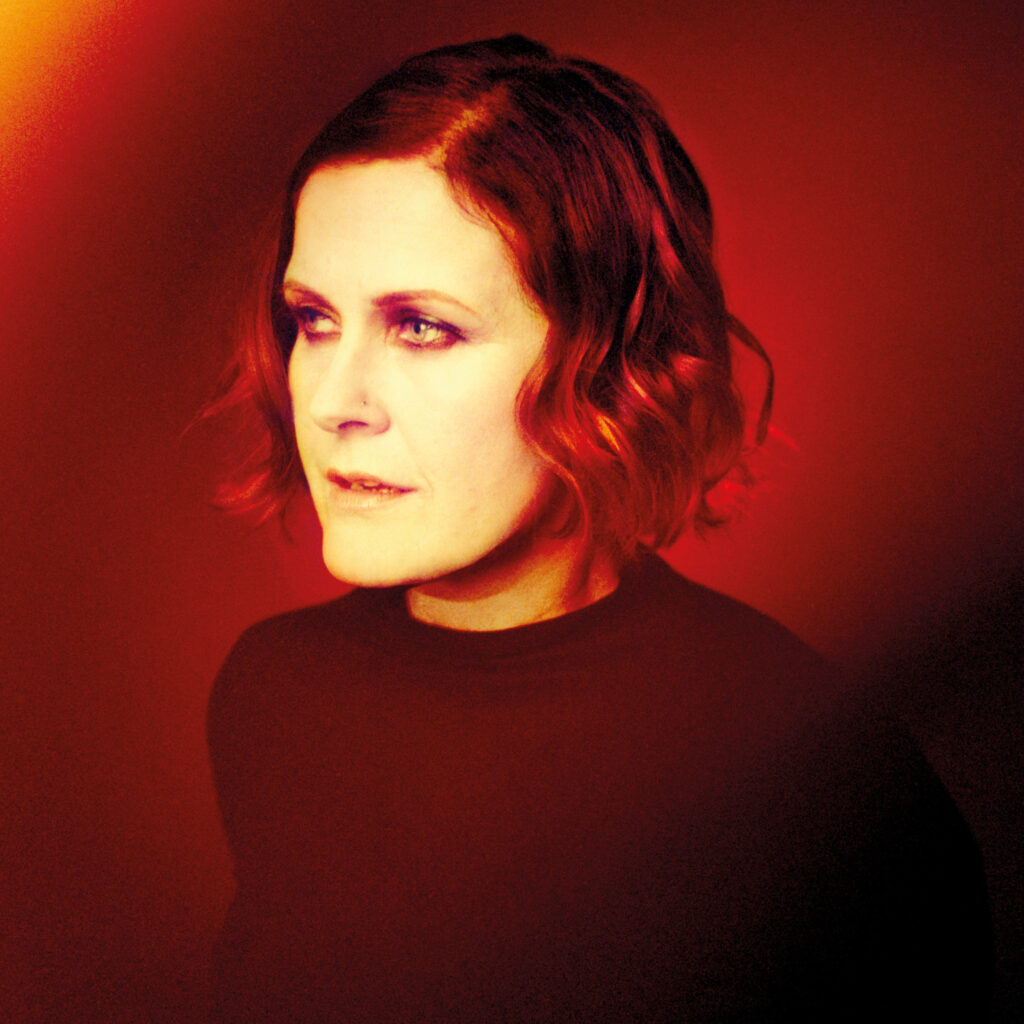
Moyet first clapped eyes on Clarke when she was 11. They both attended a community music school in Laindon, an Essex town that abuts Basildon.
“Vince and his two brothers all went to this music school and they had white, white hair,” she says. “They looked like ducks walking along with their violin cases.”
Martin Gore and Andy Fletcher also went to the school. In fact, Moyet was in the same class as them. Later on, she studied at Southend Technical College with Dave Gahan.
“I was mates with Dave, Martin and Fletch much more than I ever was with Vince,” says Moyet. “I actually played in bands before any of them and I was a bit of a name on the local scene. Vince knew me from those gigs and was looking for my phone number when he split from Depeche Mode, and I just happened to have posted an advert in Sounds that same week. So that’s how Yazoo happened.”
Aided by Blackwing Studios resident Eric Radcliffe, Moyet and Clarke recorded two inventive albums, ‘Upstairs At Eric’s’ in 1982 and ‘You And Me Both’ the following year, before Clarke dissolved the partnership.
Neither album was “pop” in the truest sense of the word, despite containing hits like ‘Only You’, ‘Don’t Go’ and ‘Nobody’s Diary’, as well as ‘Situation’, which began life as a B-side and became a US club hit thanks to a remix by New York house pioneer François Kevorkian.
Cutting things so short when the duo seemed to be on the cusp of delivering an alternative way of approaching emotional pop music seemed like another act of career suicide on the part of Clarke, who had done something similar by exiting Depeche Mode just as it was about to kick off for them.
“The downside of me and Vince, which was a shame because I believe we had a lot to offer one another, was the fact that I think he was in a low place after the fallout with Depeche,” offers Moyet. “It’s like breaking up a marriage, it’s hard to deal with, so he was in quite a dark place when we started Yazoo. He wasn’t very warm and he wasn’t very open.”
But Moyet admits that she was also struggling.
“Bearing in mind that from first going into the studio to having a massive hit with ‘Only You’ was, like, two or three months, I was made completely neurotic by the sudden attention we got,” she says. “Vince was in no place to talk me down, so we just never connected. We never did that thing where, when it was all brilliant we’d really celebrate, or when it was all shit we’d stay in each others’ corner. It was just bad timing.”
As a consequence of Yazoo falling apart before ‘You And Me Both’ was even released, the songs from that album were not played live. Twenty five years later, during downtime from Moyet’s solo career and Erasure, Moyet and Clarke reunited as Yazoo for the ‘Reconnected’ tour in 2008, allowing songs from that album to be performed on stage for the very first time and concluding the Yazoo story in a significantly happier place.
After Yazoo, at the financially motivated insistence of the usual coterie of accountants and lawyers, Moyet signed with CBS and released ‘Alf’, her nickname from the punk era. The album yielded hits like ‘Love Resurrection’, ‘Invisible’ and ‘All Cried Out’, and established her at the heart of 80s pop music. But despite the path it put her on, the aftermath of ‘Alf’ was not completely positive for Moyet.
“I really enjoyed making that album, but I never thought that it would then define me for the rest of my career,” she says now. “It’s not that I ever disliked it, it’s just that I felt like it was tattooed onto me.”
Thus began a solo career filled with a sort of uncomfortable tension between what Moyet wanted to do and be, and what her various labels wanted her to do and be. It was like that more or less until she met Guy Sigsworth.
These days, it’s all quite different. Middle age seems to be suiting Alison Moyet just fine. She’s found herself in arguably the most creative partnership of her career, with an album that she’s justifiably happy with. She’s discovering new things to excite her in the form of her art course. And she’s making peace with her back catalogue and the pop music she was guided towards after Yazoo broke up.
“There were times where I had a bad relationship with some of my old material, but that was mostly because the existence of it was making people resist my growth,” she says, thoughtfully. “But now that I’m older and I’m very comfortable in my own judgment, I’m able to see those songs as very much a part of my development.
My early songs are like old lovers, really. You’re very intimate with them for a while, but then another time you just don’t want to shag them anymore. That doesn’t mean to say they’re not valuable songs or that someone else isn’t going to love them. It’s that they just don’t belong in your life any longer. And then later on, when a couple of years have gone past, you think, ‘They were alright, weren’t they?’.”
‘Other’ is out on Cooking Vinyl

